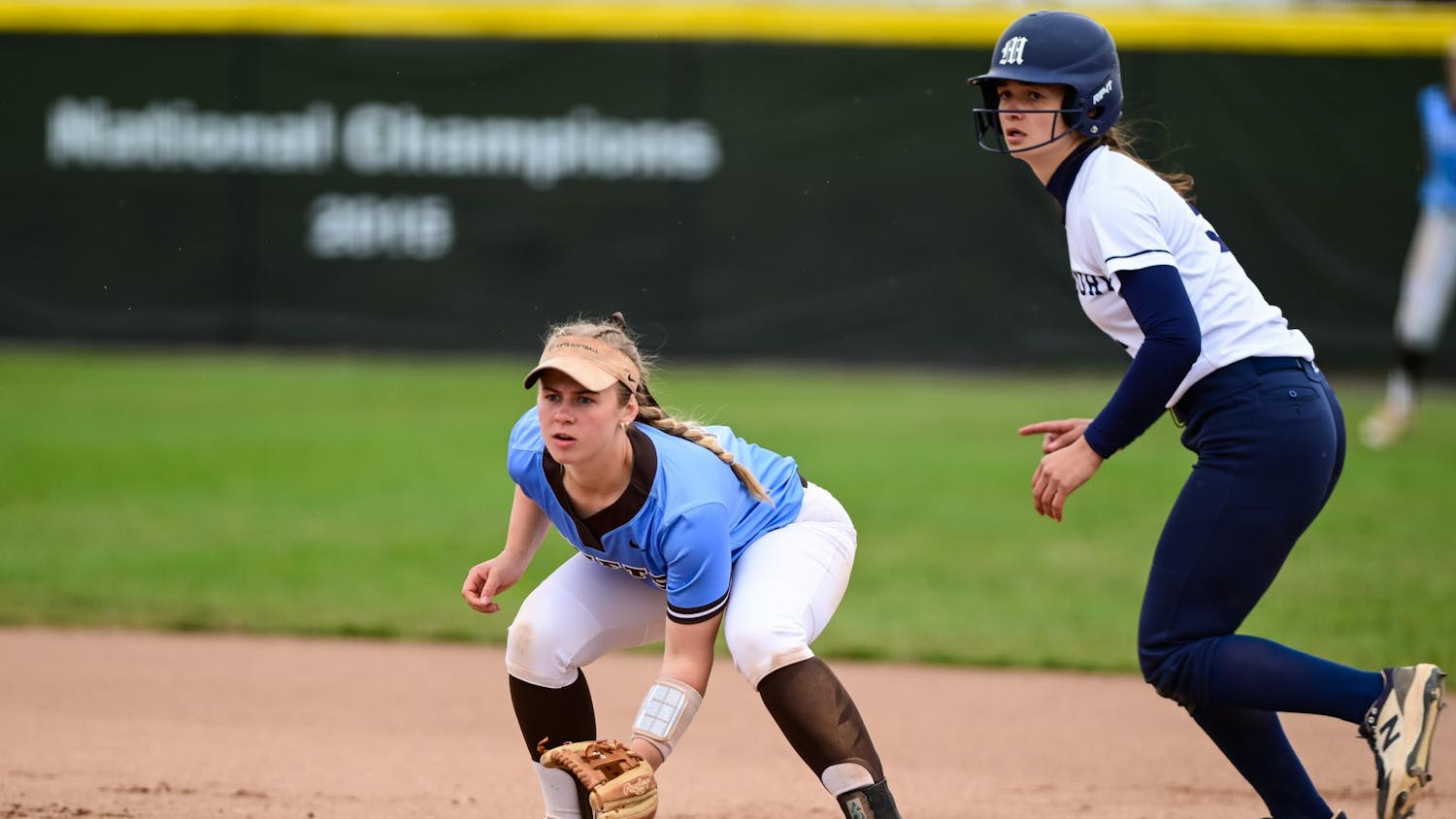In regard to perhaps the most comprehensive and thorough sports award the NCAA has to offer, Tufts University finished seventh in the Div. III Learfield IMG Directors’ Cup competition for the 2018–19 academic year. The award cements Tufts' status as one of the top athletic institutions in Div. III.
This year’s finish marks Tufts’ eighth top-10 finish in a row in the competition that compares 338 Div. III schools’ athletic performances. The Director’s Cup seeks to rank schools based on a wide range of NCAA tournaments performances, highlighting the best sports schools in the country.
The Directors’ Cup is the brainchild of the National Association of Collegiate Directors of Athletics and USA Today. Founded in 1995–96, the competition awards points on a sliding scale between zero and 100 based on a school’s performances in nine men and women’s sports, four of which are required to be men and women’s basketball and men and women’s soccer.
No. 7 Tufts’ 884 points were 57 short of No. 4 Middlebury Panthers and a whopping 233 points short of champion Williams Ephs, the only NESCAC schools ahead of the Jumbos. All told, Tufts qualified five fall teams, four winter teams and six spring teams for national championships.
The 2018–19 fall season was Tufts’ most successful of the year, helped largely in part by men’s soccer’s national championship title — Tufts reached a perfect 100 points for its third national championship in five years.Men’s soccer was Tufts’ only team sport to win a championship in the last academic year.
Field hockey reached the NCAA final, gaining 90 points for Tufts. The two sports accounted for more than half of Tufts’ 353.5 points in the fall. Other top performers included the women’s cross country team and the women’s soccer team, which reaped 64.5 and 50 points, respectively.
In the winter season, coach Carla Berube led the women’s basketball team to No. 5 in the nation, good for 73 points. It was her 17th and final season at the helm before she moved to coach the Princeton Tigers for the upcoming season.
The lacrosse teams put on a show in the spring, accruing 156 points between the men's and women's squads; this was the best performance by a single sport across two squads on the year. Women’s lacrosse did 10 points better than the men for its semi-final finish. The men’s team lost 13–11 in a heartbreaking home game against rivals Amherst in the NCAA quarter-finals.
Staying true to its close rivalry with the Amherst Mammoths, the Jumbos just barely beat their conference rivals by a score of 884 to 879, cementing their place as the No. 3 athletic school in the NESCAC — for last year at least. This year’s 884 point total is almost 100 points more than their No. 8 finish in 2017–18.
The NESCAC led all conferences with four schools in top-10 places, living up to its reputation as the most prolific Div. III conference in the country. Though historically true for the conference as a whole, this athletic prominence is a generally new development for Tufts. Since the Director’s Cup began in 1995–96, Tufts has finished in the top 10 11 times overall; nine of those have been since 2010. Tufts best athletic years to date were 2015–16 and 2016–17, when the Jumbos finished fourth place and third place, respectively.
Changes since the early 2000s include multiple athletic revamps — a new gym that opened in 2012, a redone website and a change in personnel — as well as a greater focus on athletic performances as a means to market the school to a wider demographic. Though Tufts’ quirkiness and academic prestige is perhaps better chronicled and sought after, it has quickly become one of the strongest Div. III athletic powerhouses in the country.





